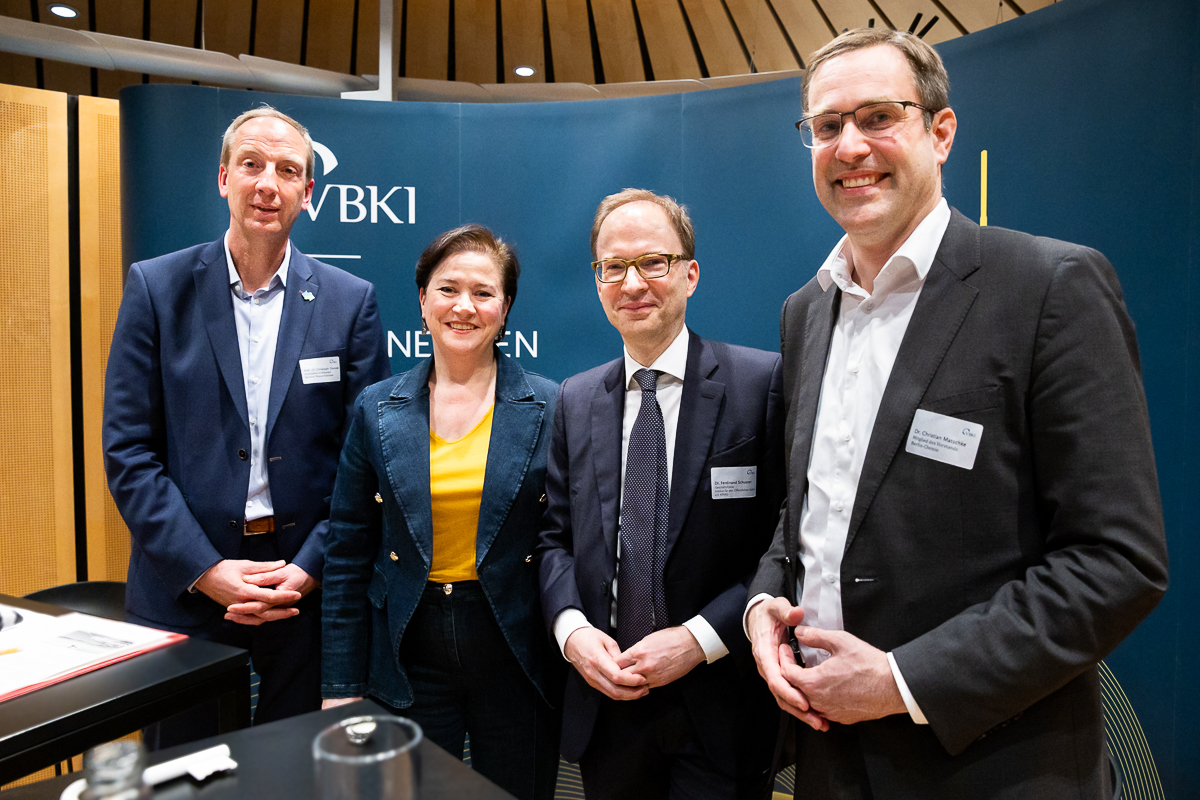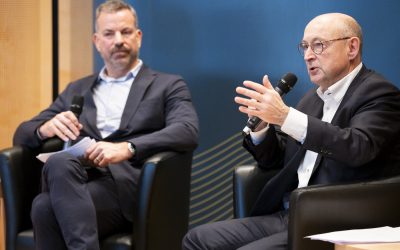"We need to adapt much faster"
Panel discussion on water as a location factor
Text: Philip Zettl | Policy Officer
It was a rainy winter in Berlin and Brandenburg, and soil moisture has recovered in many places. So is everything back to normal after several years of drought? Unfortunately not, was the answer of the two panelists to Dr. Ferdinand Schuster's question. The Chairman of the Intelligent Infrastructure Committee moderated the discussion, which revolved around the topic of "Water as a location factor".
The stable, water-rich times are over, said Christoph Donner, head of Berliner Wasserbetriebe. Instead, extreme weather events such as multi-year droughts and torrential rainfall would increase as a result of climate change: "According to models, the extremes we have experienced in recent years, first a drought like that which is normal in Namibia and then the heavy rainfall last winter, should not come to Berlin until around 2075. So we will have to adapt to the new conditions much faster than expected." In addition, there are the effects of structural change in Lusatia.
The problem: even though Berlin's industry and population are saving, water consumption is increasing. This is because Berlin is continuing to grow unabated and with it the demand. The water distribution discussions that we associate with developing countries are now also being held here, says Donner: How much water can Germany and Poland take from the Elbe and could Berlin cover part of its water requirements with an Elbe pipeline? Would a connection to the Thuringian long-distance water supply be a possibility? Or supplying Berlin with desalinated Baltic Sea water? One thing is clear: given the planning and implementation period for such complex and expensive infrastructure projects, the discussions about whether and how need to be held now.
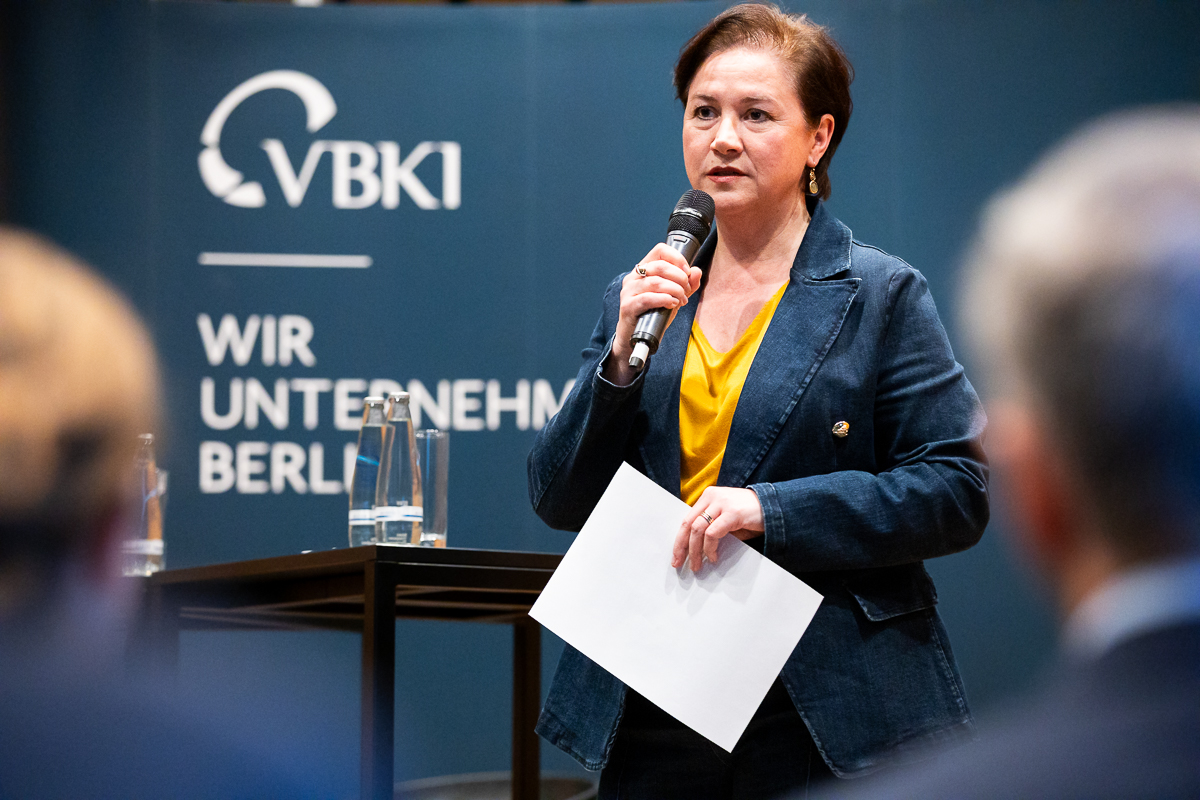
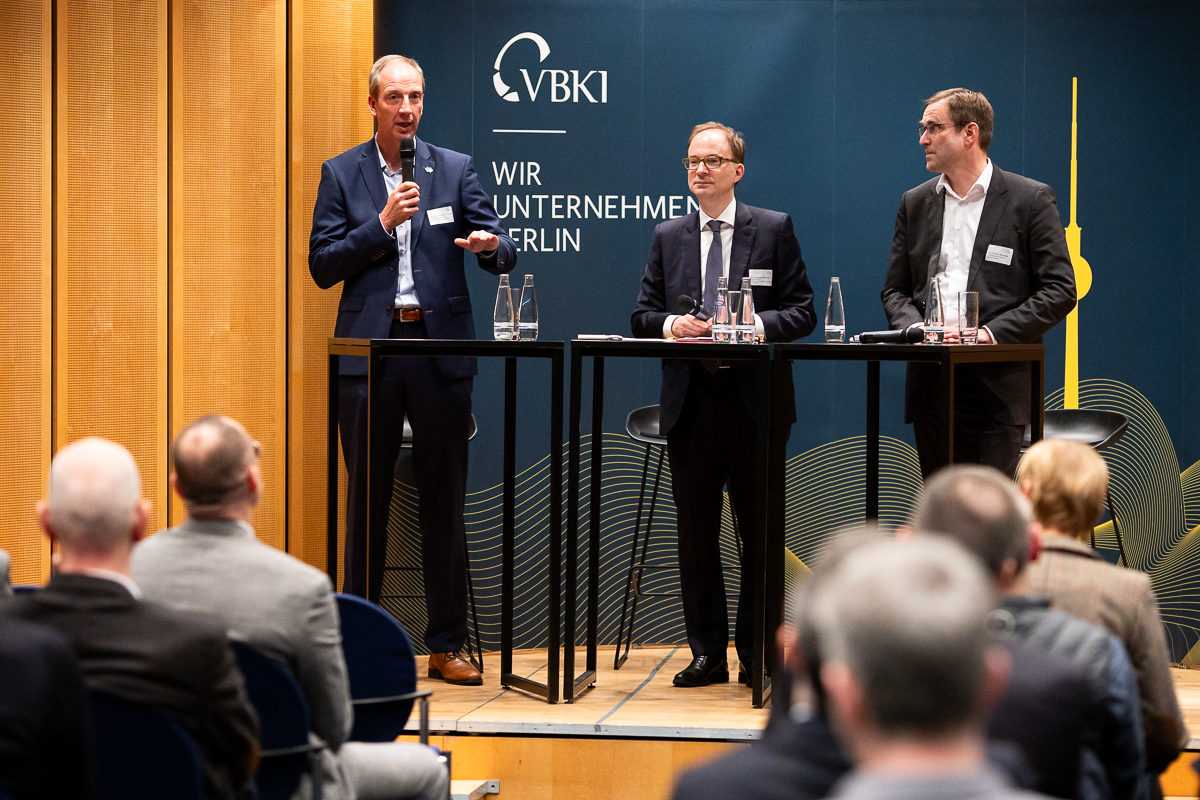
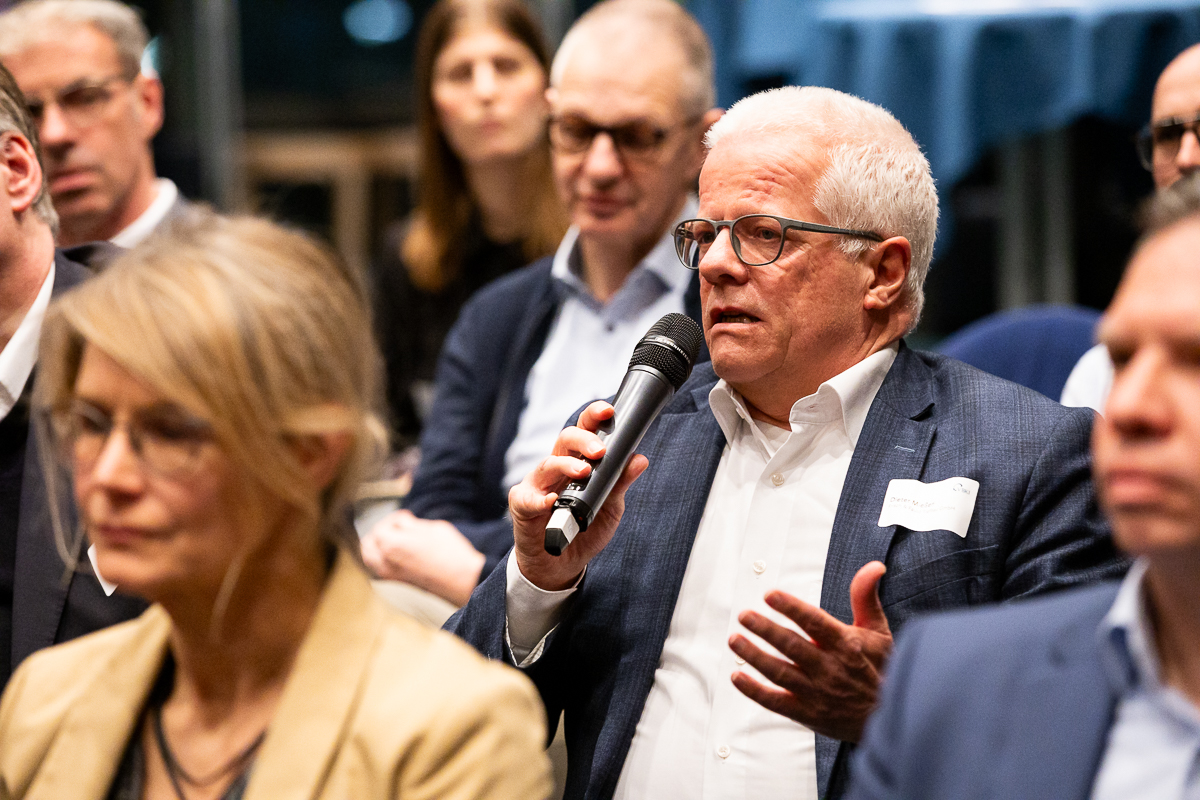
Industry is also concerned about water. Christian Matschke emphasized the importance of a stable water supply for the chemical and pharmaceutical industry. According to the top manager, it is easy to forget that in addition to drinking water, the supply of cooling and process water must also be ensured. Otherwise, entire branches of industry could come to a standstill. Together with other environmental factors, the water supply is therefore increasingly becoming a location factor: "All major industrial settlements are currently taking place in eastern Germany. For this boom in eastern Germany to continue, the water supply must be guaranteed."
So what can we do as long as there is no Baltic Sea or Elbe pipeline? The head of Berliner Wasserbetriebe recommends transforming Berlin more consistently into a sponge city, building water reservoirs as well as energy storage facilities and, above all, thinking more in terms of water cycles, i.e. water treatment and reuse. The Berlin-Chemie Executive Board is also working on water treatment: together with the TU, FU and HU Berlin and other partners, Berlin Chemie is involved in the GreenCHEM research project. The aim is to develop high-performance pharmaceutical filters that can be used to clean and safely reuse wastewater from the chemical industry.
So all's well after all? "After the talks, I am optimistic that we will find a way to ensure that Berlin remains an attractive location for people and business," said Christian Matschke.
If you would like to learn more about water as a location factor, you can register here for the major water congress organized by the VBKI, the Berlin-Brandenburg Chambers of Industry and Commerce and the VKU on April 9 and 10 in Cottbus.
Info and registration here
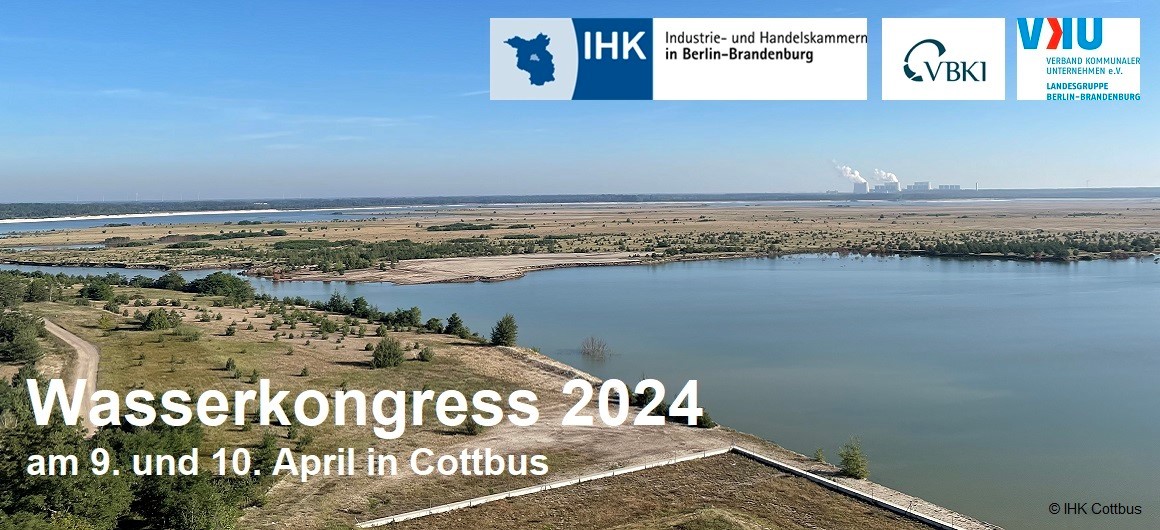
Impressions
To the picture gallery: Please click here>
You might also be interested in
More impact, less bureaucracy
VBKI discussion paper: Three proposals for a sustainable university landscape
"We don't have a knowledge problem, we have an implementation problem"
Business Breakfast: Vonovia CEO Rolf Buch as a guest at the VBKI
Experience politics up close
VBKI Young Professionals as guests at Bellevue Palace

